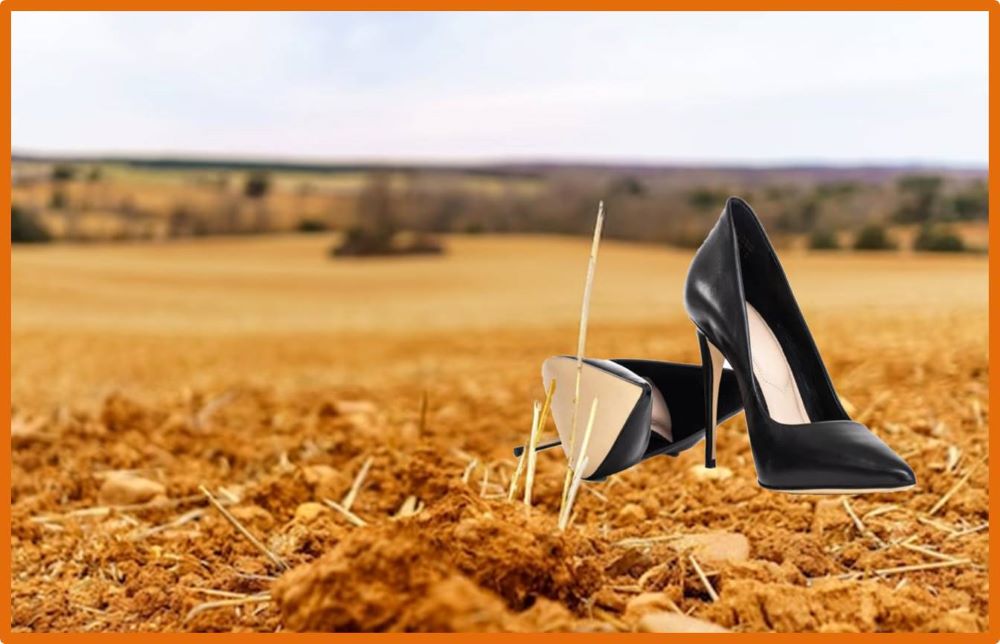And how dearly will it cost us to think that civilization rests on peasant women from city billboards. And not on ladies from the village.

Voja Žanetić
The craziest thing anyone could think of would be to start a serious editorial with two real estate ads. Well, for the craziness lovers, this is the place you can read something like that. I must emphasise that the below ads are genuine and currently active – they were found last week in Serbia (and the same can be found anywhere in the vicinity).
Here you go.
* * * * *
The first ad: “Vučić village right next to Rača Kragujevacka on the way to Kragujevac, beautiful and alive. It has a plot of 1400 square meters, with a house, barns, auxiliary buildings… Suitable for starting a business, because there is water and electricity next to the road, and suitable for living. The possibility of purchasing a field of 1.6 hectares for €70 per 100 sq meters! Price for the household – 22,000 euros. ”
Second ad: “New build, Novi Beograd, 84m2, 4.0: The luxury complex offers its future tenants a completely new dimension of comfortable family life. The most modern, top quality materials were used in construction; the apartment is located on the ideal third floor, looks on three sides. The price includes a 15m2 garage space in the building’s garage. Price €300,000. Agency commission for the buyer – 2%.“
* * * * *
We can end any discussion on the countryside, and also on rural women – which is something we are dealing with this week – by asking our respected readers to re-read the above two advertisements, then think a little bit, and then read them again and again once they’ve thought about it. But it’s not fair for the story to end here, or to not help with the thinking.
Yes, two different and developmentally opposed worlds of the times we live in are colliding right in front of our eyes. The rising world is that of the city, where you live surrounded by the most modern materials and on, imagine that, the ideal third floor. The rural world, one that is rapidly disappearing, is – as its advertising chronicler says – good for business. The part about it being great for living was added modestly, as a by the way. As is fit.
In the urban world, the rest of us mortals are being watched by toned and photoshopped “ideal” women, trimmed and aesthetically refined according to all consumer and self-care standards from street billboards. In the rural world, there are no billboards (or streets) – instead, there are women who wake up early and work all day in agriculture, trudging along the roads, ruined out of carelessness, infinitely far away from not only beauty salons and photographers with filters, but also often kindergartens, schools, health centers, post offices and banks. In a large number of cases, these ladies are far from young: the rural population, on average, has aged significantly in the past decades. Labor-hungry domestic cities and foreign guest workers have drawn both young people and young families away from the difficult and poorly paid rural life. The village is mostly old, and so are the women in it.
The above is also not being helped by beans from Kyrgyzstan, potatoes from the Netherlands, Hungarian peas, Chinese garlic, Turkish hazelnuts, lettuce from Italy, apples and pears from Poland… There is less and less that could be produced in villages in our vicinity without it being cheaper somewhere in the big wide world, either due to subsidies or technology. In fact, it is no longer a question of who – including women – lives in the countryside, but how is the countryside still alive in general?
* * * * *
We will end this editorial with a banal and painful calculation. A square meter of an apartment in that new building in the city, without agency commission, is 250 times more expensive than a square meter of a household in a village, and 5,100 (five thousand and one hundred, letters) times more expensive than a square meter of arable land near that village. Surely somewhere between these two figures is also a numerical indication of how many times the life of women living in the countryside, in a vicinity that brings life to every country, is more difficult than anything imaginable in and about life. And how dearly it will cost us to think that civilization rests on peasant women from city billboards, rather than ladies from the village.



Leave A Comment